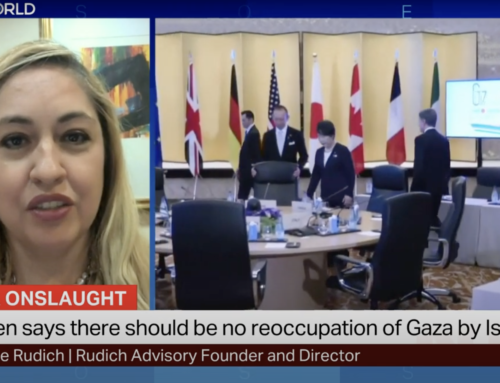Transparency of Beneficial Ownership to Battle Tax Evasion and Illicit Finance: An Overview of G8 Commitments at Lough Erne
British prime minister David Cameron announced galvanizing international action against tax evasion as a key agenda item at this week’s G8 summit in Lough Erne.
The United Kingdom government indicated that it would seek the following action as part of the G8 presidency:
-
galvanize international action on tax evasion;
-
demonstrate a determination to deal with challenges posed by shifting profits to low-tax jurisdictions;
-
ensure anti-money laundering and counterterrorist financing regimes are effective, both in G8 countries and those developing countries where economies are growing quickly;
-
improve the transparency of company ownership;
-
explore what more can be done to support lower-income developing countries to collect tax revenues owed to them.
Prior to the summit, the UK invited leaders from the overseas territories and Crown dependencies to attend the Open for Growth: Trade, Tax and Transparency event. Agreement with the overseas territories and Crown dependencies were reached in a variety of areas. Namely, the overseas territories and Crown dependencies agreed to:
-
join the multilateral convention on the sharing of tax information;
-
produce action plans to fully implement Financial Action Task Force (FATF) standards on beneficial ownership; and
-
make data available to law enforcement and tax authorities.
This follows a move made by the Crown dependencies and overseas territories in May 2013 to join the G5 pilot for the automatic exchange of tax information. Data to be shared includes names, addresses, dates of birth, account numbers, account balances and details of payments made into those accounts.
During the Lough ErneSummit itself, the UK issued the UK Action Plan to Prevent the Misuse of Companies and Legal Arrangements and the G8 issued the G8 Action Plan Principles to Prevent the Misuse of Companies and Legal Arrangements.
Details of the high-level principles for G8 countries to develop action plans and the specifics of the UK action plan both are provided below.
The G8 Action Plan recognizes that “one-size fits all approach” may not be the most effective and as a result a core set of high-level principles were issued, which are consistent with the FATF40. The G8 further committed to publish national action plans based on the core principles to tackle money laundering and tax evasion.
To improve accountability, the G8 has agreed to self-report on progress made against individual action plans to the FATF.
G8 Action Plan Principles
-
Companies should be required to obtain and hold beneficial ownership and basic information that is “adequate, accurate, and current”
-
Beneficial ownership information should be available to relevant authorities onshore
-
Consider the development of central registries of company beneficial ownership at national or state level
-
Consider measures to facilitate access by financial institutions and other regulated businesses with some basic company information accessible by the public
-
Trustees of express trusts should know the beneficial ownership structure of express trusts and information should be accessible by relevant authorities
-
Carry out national risk assessments to understand money laundering and terrorist financing risk & implement “effective and proportionate” measures to target risks
-
Share findings of national risk assessments with relevant authorities, regulated businesses, and other jurisdictions
-
Look to prevent the misuse of financial instruments a certain shareholding structures (bearer shares and nominee shareholdings and directors)
-
Countries should ensure effective supervision of the obligation of FIs and DNFBPs, including trust and company service providers, to identify and verify beneficial ownership and customer due diligence
-
Robust enforcement of “effective, proportionate and dissuasive sanctions” for regulated businesses that do not comply with customer due diligence obligations
-
Increase cooperation by local and foreign authorities to combat the abuse of corporate structures for illicit finance.
UK Action Plan
-
Ensure that local laws (Companies Act 2006 and UK Money Laundering regulations) require that companies obtain and hold “adequate, accurate, and current” information on ultimate beneficial ownership
-
Amend local laws to require that beneficial ownership data is “accurate and readily available” to authorities
-
Set up a central register on beneficial ownership in Companies House
-
Ensure that trustees of express trusts are obligated to obtain & hold “accurate & current” information on beneficial ownership
-
Ensure that authorities have access to information on trusts
-
Ensure effective mechanisms in place to share information with other countries (bi-latera/multi-lateral agreements)
-
Improve supervision over company formation agents
-
Carry out a review of customer due diligence measure undertaken by trust and company service providers
-
Issue pre-consultation paper by 2013 to trigger a review of corporate transparency, including bearer shares and nominee directors
-
Complete and share findings of national money laundering and terrorist financing risks by 2014
-
Provide support to Overseas Territories and Crown Dependencies to publish plans to fully Implement FATF40
-
Improve international cooperation through timely and effective exchange of information
-
Implement measures at the same time as the ratification of the 4th EU Money Laundering Directive.
18 June 2013
http://www.g8.utoronto.ca/evaluations/2013lougherne/rudich-transparency-2013.html
Originally published by the G7 Research Group
Download “Transparency of Beneficial Ownership to Battle Tax Evasion and Illicit Finance.pdf”
Transparency-of-Beneficial-Ownership-to-Battle-Tax-Evasion-and-Illicit-Finance_G8LongErne_18June2013.pdf – Downloaded 994 times – 541 KB




